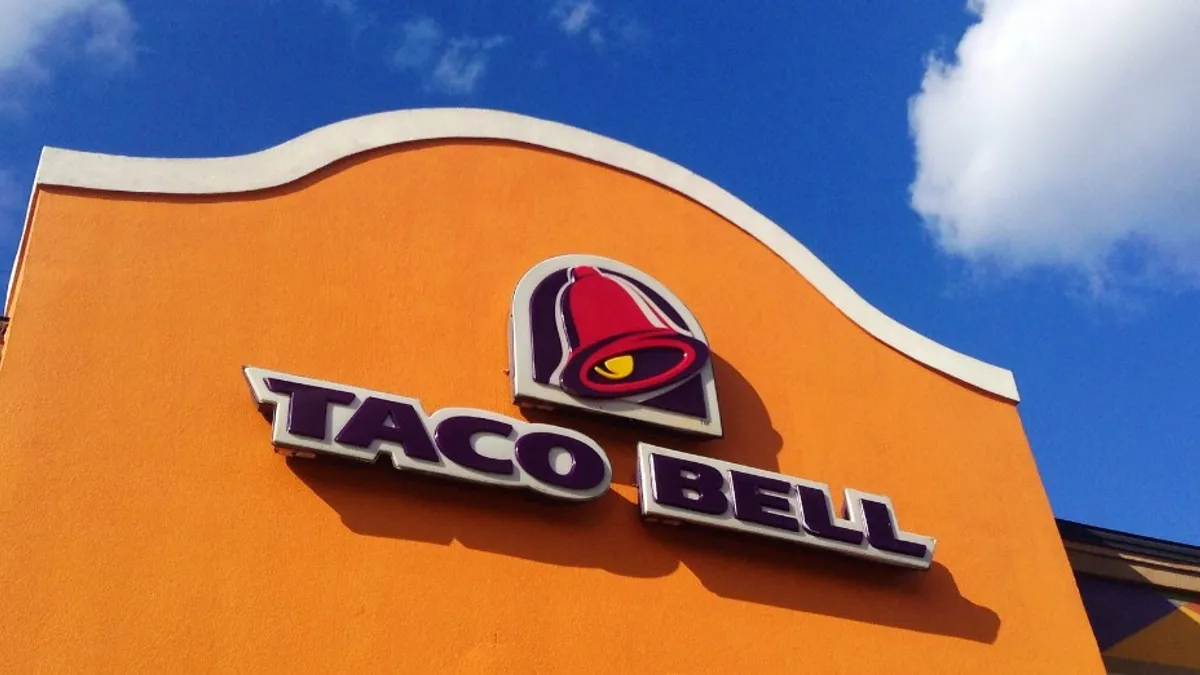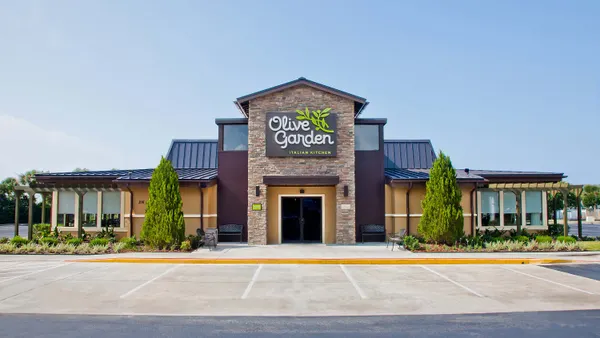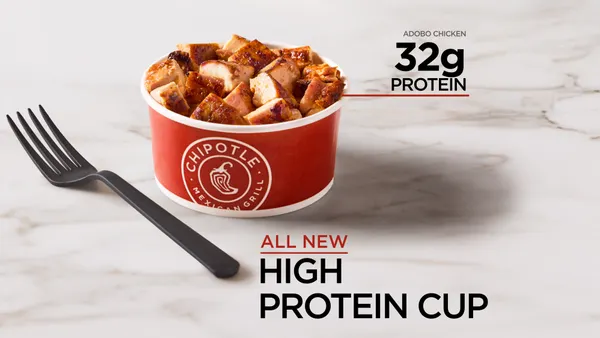Dive Brief:
- Taco Bell CEO Mark King told Nation's Restaurant News that the brand will "definitely do something with plant-based protein and probably by the end of the year." King said he has met with both Beyond Meat and Impossible Foods in the last two months.
- To date, the chain has been emphasizing its vegetarian menu in the U.S. and allowing customers to make standard menu items vegetarian by swapping out meat for beans. It debuted a vegan meat substitute in Spain during July 2019, but has yet to do so in the U.S.
- King was appointed as CEO of Taco Bell last year after working as president of Adidas Group North America and is aiming to reach $20 billion in sales and expand to 10,000 restaurants globally during this decade.
Dive Insight:
Taco Bell is one of the last QSR chains still on the plant-based sidelines as other brands dive in headfirst. As more restaurants add meat analogues to their menus, Taco Bell may be feeling the pressure to stay relevant to its consumers, despite the success of its vegetarian menu. The chain has a strong following with both millennials and Gen Z, but millennials are primarily driving sales of plant-based food, according to Forbes. Adding new plant-based protein could be a bid to ensure that it stays relevant with millennials as they become heads of households and increase their earning capacity.
As for its road to a plant-based product debut, King is still ironing out many of the details.
"We need to figure out where does plant-based protein work in the Taco Bell space," he told Nation's Restaurant News. "We're not sure exactly right now, but we are sure that we need to experiment with it even if it's on a smaller scale or in smaller products or regional."
Like McDonald's, Taco Bell may be treading cautiously to avoid issues with supply shortages, which has caused problems for both Beyond Meat and Impossible Foods in the past. McDonald's opted to do a Canadian test of its P.LT. Burger, which intentionally does not carry the Impossible or Beyond Meat names. This gives it flexibility in terms of where its plant-based patty comes from, especially since McDonald's is known for working with multiple suppliers. It has yet to launch this product in the U.S., but analysts expect it could sell 250 million plant-based burgers annually if it does so.
Taco Bell will face a fair amount of plant-based competition from Mexican QSR competitors. Last year, Del Taco sold 2 million plant-based tacos using Beyond Meat’s crumble product and added Beyond Burritos to its menu. Qdoba and Moe's Southwest Grill also added plant-based options to their menus early in 2019.
Many QSRs are already launching additional plant-based focused menu items, aw well, which could be pressuring Taco Bell to pursue plant-based innovation. Carl's Jr. is already adding a second Beyond Meat burger to its menu and Burger King recently launched an Impossible sausage breakfast sandwich while Starbucks said in January that it would add more plant-based fare to its menus.
But Taco Bell has good reason to proceed with caution, as some QSRs are already scaling back plant-based offerings including Tim Horton's in Canada. And for some QSR locations, sales of plant-based menu items are already dwindling as the novelty wears off for many consumers.









